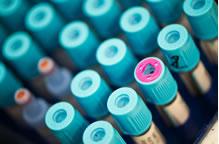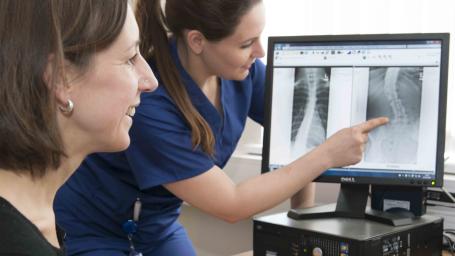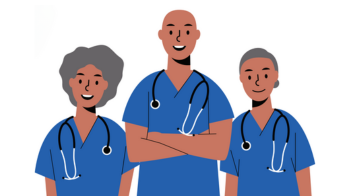What is Organising Pneumonia (OP)?
Organising Pneumonia (OP) is a rare lung disease that causes inflammation and scarring in the small airways (bronchioles) and air sacs (alveoli) of the lung. Although OP has pneumonia in its name, it is not an infection and cannot be passed on.
What are the symptoms?
In OP it can be more difficult for the lungs to transfer oxygen into the bloodstream. As a result the body may not get the oxygen it needs to work properly. This can cause breathlessness and/or a cough from the irritation, and you may feel fatigued. Some people can have a flu-like illness, high temperatures, or lose weight.
Why does OP happen?
It some cases is not entirely clear why OP develops and this may be called idiopathic or cryptogenic disease. In rare cases it may be linked to an inflammatory condition that affects other parts of the body.
What tests will I have?
Your specialists will take a detailed medical history and perform a thorough physical examination. You may be asked to have the following investigations:
- Chest X-ray.
- Lung function tests. These are breathing tests which show how well your lungs are working. They are used later to monitor your lung disease, to see if it is progressing. You may also be asked to have a walk test where you will be asked to rate how breathless you are and measure your walking distance and oxygen levels.
- A series of blood tests will be done to screen for systemic inflammatory conditions.
- A CT scan of your chest will show a detailed picture of your lungs that allow your specialist to identify scarring of the lungs.
- Some people may also have a bronchoscopy, where a small flexible tube is passed down into your lungs to allow collection of cells. This may help with diagnosis and management.
What treatments are available?
Treatments may differ depending on the symptoms you have, and your specialist will discuss which treatment is right for you. In some mild cases, symptoms of OP may resolve without treatment and can simply be monitored and treated later if necessary.
Medications
Steroids are produced naturally in the body by the adrenal gland. Additional steroids called prednisolone can be given to try and reduce inflammation in some patients.
They are usually given in a tablet but may be given intravenously (into a vein). If you are prescribed steroid tablets long-term, you should not stop taking them suddenly. You will be given a ‘steroid emergency card’ which you should always carry with you.
The specialist may also see if you need bone protection medication and anti-reflux treatment whilst on steroids.
Immunosuppressive medication
Mycophenolate mofetil and azathioprine are medications that lower the activity of the immune system to help control the disease. Treatment with immunosuppressive medications may allow you to stop taking steroids. As a result, they are sometimes also called a ‘steroid-sparing agent’. You will require regular blood tests to monitor your response to treatment.
Other treatments
Other medications and therapies are used to help relieve symptoms, such as coughs and breathlessness. Your specialist will discuss options with you on an individual basis.
Pulmonary rehabilitation is a supervised exercise and education programme that can help you to learn to manage your breathlessness and stay active. The programmes are multidisciplinary. This means the team includes respiratory physiotherapists, nurses, dieticians, doctors and others. It can help improve your energy, strength, and quality of life.
As the lung fibrosis stops enough oxygen getting into the bloodstream, some people may need supplemental oxygen therapy. When levels of oxygen are low, oxygen therapy may help with breathlessness and enable you to be more active. Corrected levels of oxygen in the blood are necessary for normal body functions and reducing additional health problems.
You should also discuss with your physician if there are any clinical trials in which you can participate. Clinical trials are voluntary research studies, conducted in people, which are designed to answer specific questions about the safety and/or effectiveness of medications.
How can I help myself?
Have your seasonal vaccinations (COVID-19 and flu) and the pneumonia vaccination (you only have this once).
You may be eligible for a variety of benefits such as Attendance Allowance or Personal Independence Payment if you need help with personal care or getting about.
Our specialist nurses run a regular Pulmonary Fibrosis Support Group which is a space for discussion with other patients with lung fibrosis. Here we also aim to have several presentations from a variety of guest speakers and charities.
Keep active and do what you enjoy!
Further information and resources
Action for pulmonary fibrosis
Asthma + Lung UK
How to contact us
© North Bristol NHS Trust. This edition published June 2025. Review due June 2028. NBT003789.


















